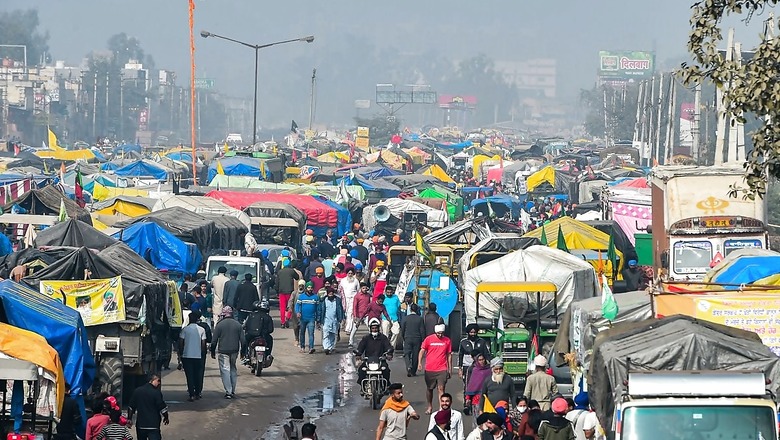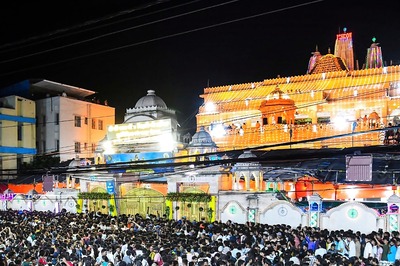
views
Garbage has been piling up at the Singhu border in Delhi where the farmers has been staying put for over a fortnight protesting the farm reform laws, with many complaining there has been little help from the authorities in keeping the site clean. Clusters of piled up paper and plastic glasses, bottles, fruit peels, waste generated from the food being cooked and dirty toilets combined with stagnant water generating a stench, the conditions at the site is worsening.
"Officials from the municipal corporations have been coming to clean the site once in a while, but it is the farmers who are doing most of the cleaning," said Malkar Singh, a farmer from Karnal, who has been camping at the site since November 25. On both the Delhi and Haryana sides of the border, a handful employees from the municipal corporations can be seen sweeping on the periphery of the protest sites, but farmers say that is not enough for maintaining the hygiene of the site which is seeing such a massive congregation.
"The toilets haven't been cleaned for days. There is no help from the government," said an agitated Gurvinder Singh whoc hails from Ramgarh in Punjab. Camping at the border since November 30, the farmer said whatever little cleaning is happening is because of the "safai pasand" farmers, who have taken it upon themselves to keep the area clean.
The mobile toilets provided by the Delhi government are visibly not enough for all farmers at the site, leaving them with no option but to urinate in the open. "There are so many of us here and not enough bathrooms. We urinate wherever we can. What else can we do? said Bhajan Singh from Ferozepur in Punjab. A small group of Bharat Kisan Union farmers from Punjab have recently installed a laundry facility with washing machines running for eight to 10 hours a day to ensure that the farmers get to clean their clothes.
"We use water from the tankers that we have brought along and use the batteries of tractors to run the machines. The washing powder is donated by various people," Jagjit Singh, one of the men running the service, said. Thousands of farmers agitating against the centre's new agri laws have been camping at multiple border points for two weeks. On Thursday, they threatened to intensify their agitation with a plan to block railway tracks if their demands are not met soon.
The announcement came on a day Union Agriculture Minister Narendra Singh Tomar said it was not proper to announce the next stage of agitation when talks were continuing and urged the unions to return to the discussion table. The three farm laws enacted in September have been projected by the government as major reforms in the agriculture sector that will remove the middlemen and allow farmers to sell anywhere in the country.
However, the protesting farmers have expressed apprehension that the new laws would pave the way for eliminating the safety cushion of Minimum Support Price and do away with the mandis, leaving them at the mercy of big corporates. The Centre has repeatedly asserted that these mechanisms will remain.
.
Read all the Latest News, Breaking News and Coronavirus News here


















Comments
0 comment